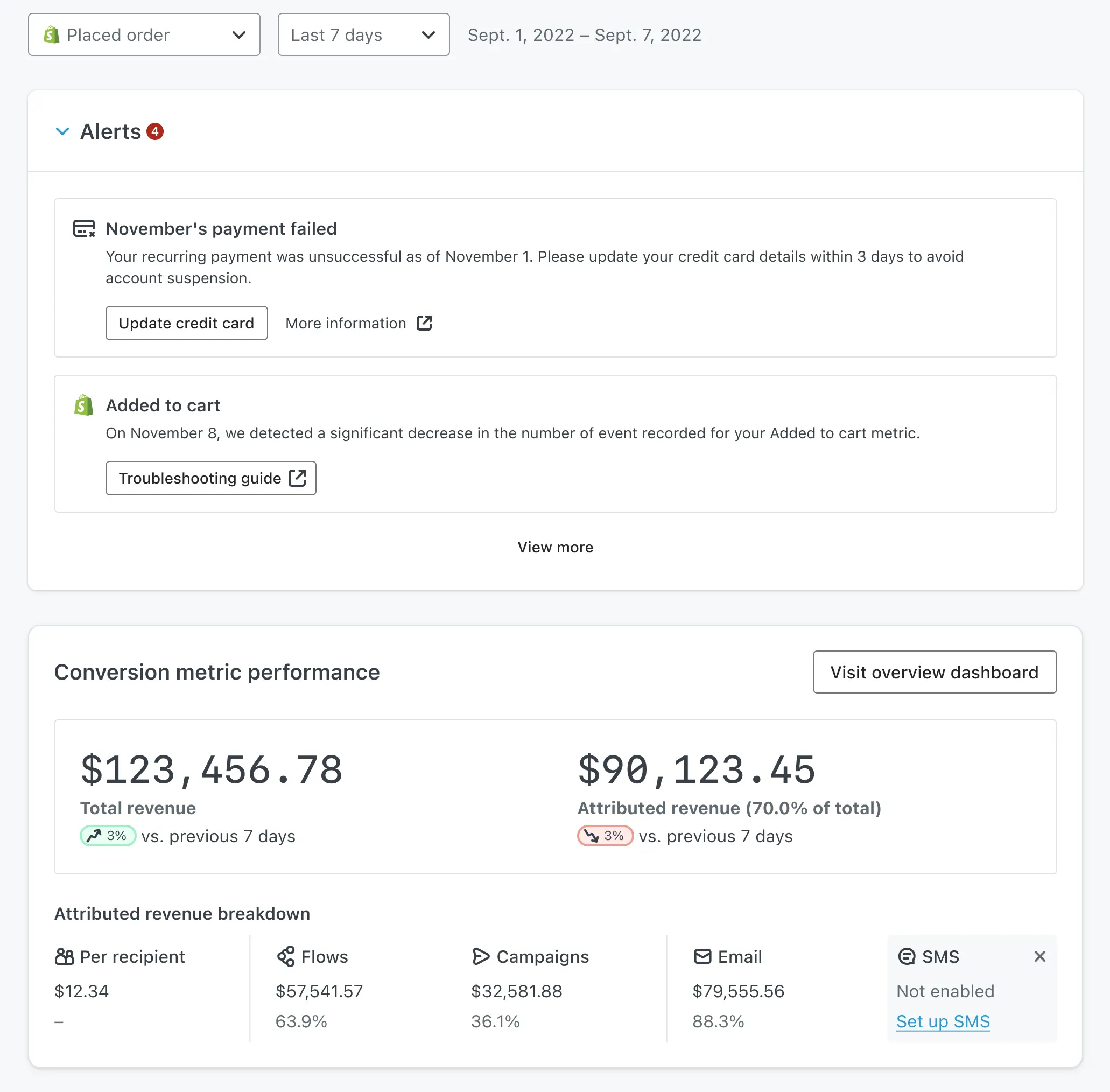Alternatives to Antavo
1. Braze
+Pros
- Unified AI workflow management through BrazeAI™
- Real-time cross-channel orchestration via Canvas Flow
- Proven personalization capabilities delivering 3x purchase increases
-Cons
- Proportionally higher costs for SMBs under $10M revenue
- Generative AI maintains 60-70% consistency in brand alignment
- API documentation gaps for custom integrations
One highlighted feature and why it's amazing
Delivers integrated AI capabilities through three core pillars: Create, Personalize, and Optimize, distinguishing Braze from competitors with fragmented approaches.

Another highlighted feature of why it’s amazing
Processes high-volume events with sub-second latency, enabling real-time cross-channel campaign coordination.
2. Klaviyo
+Pros
- Unified marketing automation combining email, SMS, and review management with AI-powered personalization .
- Deep Shopify integration providing automated data sync and behavioral tracking .
- Proven ROI delivery across multiple customer implementations .
-Cons
- Implementation complexity despite moderate technical ratings .
- Active profile billing methodology can penalize businesses with large but inactive customer databases .
- 90-day 'suppression jail' limits reactivation of unengaged contacts .
One highlighted feature and why it's amazing
Transforms audience building from manual rule configuration to natural language interaction, enabling complex behavioral targeting without requiring technical expertise .

Another highlighted feature of why it’s amazing
Generate personalized content while maintaining brand voice consistency through machine learning models trained on existing brand communications .
3. LoyaltyLion
+Pros
- Shopify-native architecture providing streamlined deployment within the Shopify ecosystem
- Confirmed integration capabilities with major ecommerce platforms including Klaviyo/Attentive for automated communications
- Predictive analytics functionality through behavioral data analysis and dormancy multipliers for customer lifetime value forecasting
-Cons
- Advanced AI capability gaps compared to specialized AI-native platforms, lacking native chatbots, predictive content creation, and sophisticated machine learning applications
- Customization limitations may require developer intervention for styling modifications
- Extensive personalization needs may exceed platform capabilities
One highlighted feature and why it's amazing
Enhanced with predictive analytics and personalization engines for customer behavior analysis.

Another highlighted feature of why it’s amazing
Forecasts customer lifetime value through dormancy multipliers that predict future purchase likelihood based on recency patterns.
Other Alternatives
SAP Emarsys
Salesforce Commerce Cloud Einstein
How We Researched This Guide
About This Guide: This comprehensive analysis is based on extensive competitive intelligence and real-world implementation data from leading AI vendors. StayModern updates this guide quarterly to reflect market developments and vendor performance changes.
206+ verified sources per analysis including official documentation, customer reviews, analyst reports, and industry publications.
- • Vendor documentation & whitepapers
- • Customer testimonials & case studies
- • Third-party analyst assessments
- • Industry benchmarking reports
Standardized assessment framework across 8 key dimensions for objective comparison.
- • Technology capabilities & architecture
- • Market position & customer evidence
- • Implementation experience & support
- • Pricing value & competitive position
Research is refreshed every 90 days to capture market changes and new vendor capabilities.
- • New product releases & features
- • Market positioning changes
- • Customer feedback integration
- • Competitive landscape shifts
Every claim is source-linked with direct citations to original materials for verification.
- • Clickable citation links
- • Original source attribution
- • Date stamps for currency
- • Quality score validation
Analysis follows systematic research protocols with consistent evaluation frameworks.
- • Standardized assessment criteria
- • Multi-source verification process
- • Consistent evaluation methodology
- • Quality assurance protocols
Buyer-focused analysis with transparent methodology and factual accuracy commitment.
- • Objective comparative analysis
- • Transparent research methodology
- • Factual accuracy commitment
- • Continuous quality improvement
Quality Commitment: If you find any inaccuracies in our analysis on this page, please contact us at research@staymodern.ai. We're committed to maintaining the highest standards of research integrity and will investigate and correct any issues promptly.